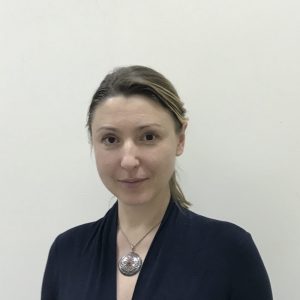
Research Interest
Our perception of sound depends on the highly specialized hair cells interdigitated with supporting cells that together form a sensory epithelium of the inner ear. We are born with approximately 16,000 sensory hair cells in the cochlea of the inner ear. As we age, this surprisingly small number of sensory cell progressively decreases due to genetic and environmental factors, such as exposure to loud sounds, bacterial and viral infections and ototoxic drugs, including aminoglycoside antibiotics and the anti-cancer drug, cisplatin. Because supporting cells in mammals lost their ability to regenerate hair cells, the gradual hair cell loss during our lifespan leads to ultimate deafness. Hearing loss impacts well-being of 360 million people worldwide and has huge socioeconomic impact. Our ultimate goal is to unravel the molecular mechanisms that impede the ability of mammalian supporting cells to regenerate hair cells. Understanding of these molecular mechanisms would allow the development of new gene therapy strategies for hair cell regeneration.
Educational Background
Ph.D., Free University Berlin, Berlin, Germany
Postdoctoral:
- Brennwald Lab, Department of Cell Biology, University of North Carolina, Chapel Hill, US
- Xiaowei Lu Lab, Department of Cell Biology, University of Virginia, School of Medicine
Positions
2017 – current, Assistant Professor, Department of Biology, Nazarbayev University, School of Science and Technology
2014 – 2017, Research Scientist, Department of Neuroscience, University of Virginia, School of Medicine
BIOL 110 Modern Biology I
BIOL 385 Cell signaling: principles and mechanisms



